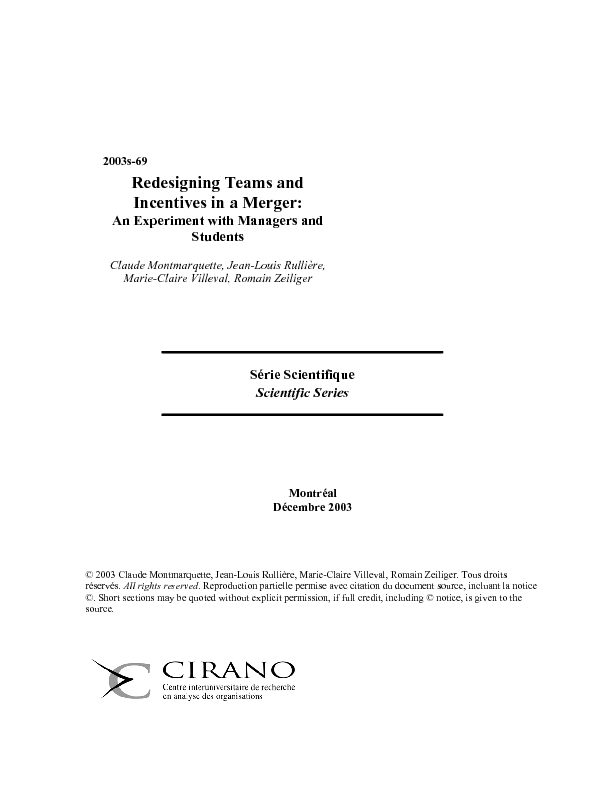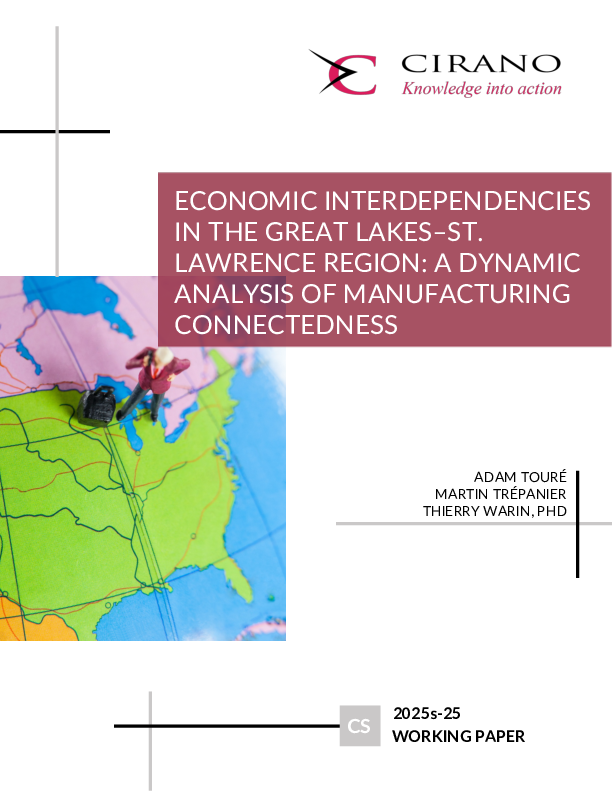Redesigning Teams and Incentives in a Merger: An Experiment with Managers and Students
After a merger, company officials face the challenge of making compensation schemes uniform and of redesigning teams with managers from companies with different incentives, work habits and recruiting methods. In this paper, we investigate the relationship between executive pay and performance after a merger by dissociating the respective influence of shifts, which occur in both compensation incentives and team composition. The results of a real effort experiment conducted with managers within a large pharmaceutical company not only show that changes in compensation incentives affect performance but also suggest that the sorting effect of incentives in the previous companies impact cooperation and efficiency after the merger. Replicating this experiment with students showed differences in strategy rather than in substance between the two groups of subjects with managers appearing performance driven while students are more cost driven.
[ - ]




